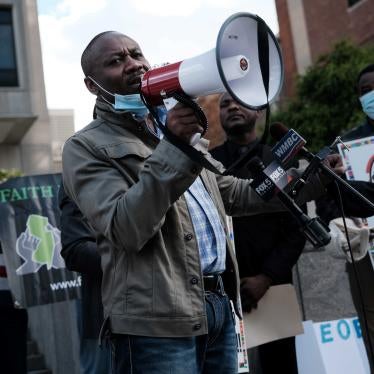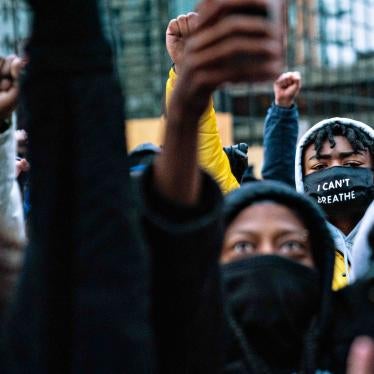In June 2012, Rosa Carrera fled violence-plagued Chihuahua, Mexico, for the United States after local townspeople and police hinted that her life was in danger. They said Carrera, then 45, had been "asking too many questions" about the unsolved murder of her two adult sons several months earlier, including by filing a complaint with the state government alleging inadequate investigation by the police. When I interviewed Carrera last fall, in a jail in Marfa, Texas, she told me she had been apprehended three times trying to cross into the United States, and each time told US immigration agents she was afraid to return to Mexico. But they had disregarded her claim and had her referred for criminal prosecution and deportation rather than for an interview to assess whether she had a "credible fear" that her life or freedom would be threatened upon returning home—the first step in applying for asylum at the border.
I thought of Rosa yesterday when I read an article, titled “More Illegal Immigrants Ask for Asylum,” in the Wall Street Journal. The author strongly suggests that the recent dramatic rise in requests for asylum at the US-Mexico border is the result of more "illegal crossers" seeking to game the system by falsely claiming they are fleeing danger. Similar concerns have been raised by others, including Rep. Bob Goodlatte of Virginia, a powerful conservative voice on immigration issues.
But there are other possible explanations, at least as persuasive, for the surge of asylum claims. As Human Rights Watch has documented, Mexico in recent years has seen a staggering increase in violence related to government efforts to combat organized crime, which has threatened the safety of many Mexicans unconnected to illegal activity. Violence and crime have surged, too, in Central American countries, with few perpetrators brought to justice. It should come as no surprise that the vast majority of asylum applicants to the US come from precisely these countries.
Rosa Carrera did eventually receive a hearing, in September 2013 -- after three criminal prosecutions for illegally entering the US, and a year in federal jail and immigration detention. She was denied and remains in detention pending an appeal.
Not everyone who has a fear of returning to their country will meet the high standard for asylum in the US, but all immigrants who seek asylum in the United States, in keeping with US obligations under international law, should get a fair chance to be heard. The recent surge in asylum applicants -- which, it's well worth noting, remains a small proportion of those caught crossing the border illegally -- certainly deserves attention. But the focus should not be only on those who may be making fraudulent claims, but also on how the strained asylum system may be impeding genuine refugees from seeking the protection they need.









